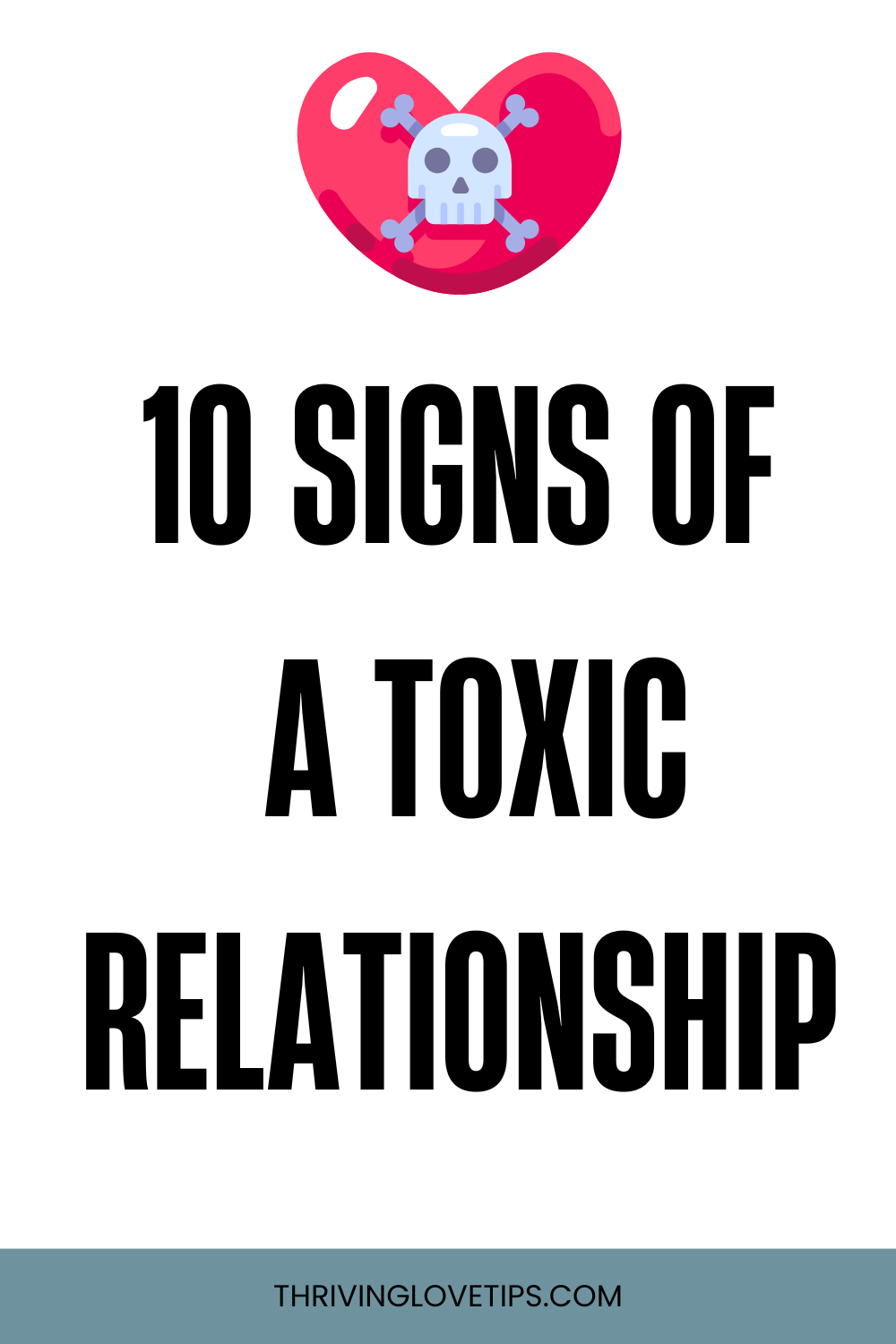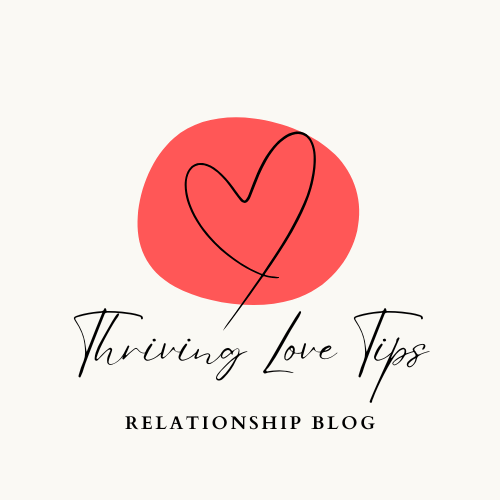There’s a particular kind of confusion that comes with being in a toxic relationship. On the surface, everything might look fine. You might even have moments of genuine happiness. But underneath, there’s this persistent feeling that something is deeply wrong. You’re exhausted all the time. You don’t recognize yourself anymore. You feel like you’re constantly walking on eggshells, trying to prevent the next explosion or navigate around your partner’s mood.
The tricky thing about toxic relationships is that they rarely start toxic. In the beginning, things were probably wonderful. Your partner seemed perfect, attentive, loving. Maybe they swept you off your feet with grand romantic gestures or made you feel more special than anyone ever had. But gradually, almost imperceptibly, things shifted. The criticism started. The control crept in. The person who once made you feel amazing now makes you question everything about yourself.
What makes toxic relationships so difficult to leave is that they mess with your perception of reality. When someone tells you often enough that you’re too sensitive, too dramatic, or too demanding, you start to believe it. When someone alternates between treating you terribly and showering you with affection, you start to think that maybe the good moments are worth enduring the bad. When you’ve invested so much time, energy, and emotion into a relationship, walking away can feel like admitting defeat.
But here’s what you need to know: recognizing toxicity isn’t about blame or judgment. It’s about protecting yourself and your well-being. Love shouldn’t hurt consistently. It shouldn’t leave you feeling smaller, anxious, or uncertain about your own worth. If you’re reading this because you suspect your relationship might be toxic, trust that instinct. Your gut is trying to tell you something important.

1. You’re Constantly Walking on Eggshells
One of the most telling signs of a toxic relationship is that pervasive feeling of tension, like you’re never quite safe to relax and be yourself. You’re constantly monitoring your partner’s mood, adjusting your behavior to avoid triggering their anger, irritation, or withdrawal. It’s exhausting, and it’s no way to live.
In healthy relationships, you can generally predict how your partner will respond to things. There’s a baseline of emotional stability that lets you feel secure. In toxic relationships, you never quite know which version of your partner you’re going to get. Will they think your joke is funny or will they accuse you of mocking them? Will they be supportive of your work stress, or will they make it about how you never have time for them?
This unpredictability creates a constant state of hypervigilance. You’re always scanning for danger, always trying to read the room, always preparing for the worst. Dr. Ramani Durvasula, a clinical psychologist specializing in toxic relationships, describes this as “walking through a minefield.” You know explosions are possible, you just don’t know where or when they’ll happen.
Over time, this constant tension takes a serious toll. You might develop anxiety, have trouble sleeping, or find yourself feeling physically sick when you know you’ll be seeing your partner. You might start avoiding conversations or activities that could potentially upset them, gradually making your world smaller and smaller to minimize conflict.
Pay attention to how your body feels around your partner. Do you find yourself tensing up? Holding your breath? Feeling relieved when they leave rather than missing them? Your body often knows something is wrong before your mind is ready to acknowledge it.
2. They Control and Isolate You
Control is one of the hallmarks of toxic relationships, though it often starts so subtly you don’t recognize it’s happening. It might begin with seemingly caring concerns. “I just worry about you when you go out with those friends.” “I don’t think your family treats you well.” “That outfit might give people the wrong impression.” But underneath the concern is a clear agenda: reducing your independence and your support system.
As time goes on, the control becomes more obvious. They want to know where you are at all times. They demand access to your phone, your email, and your social media accounts. They question you extensively about conversations you’ve had with others. They get upset or create drama whenever you want to spend time with friends or family without them.
The isolation piece is particularly insidious. Toxic partners systematically damage your other relationships until you’re increasingly dependent on them for all your social and emotional needs. They might criticize your friends constantly until you stop bringing them up. They might create conflict whenever you make plans with others, until it’s easier to just stay home. They might even be charming and wonderful around your loved ones while being cruel to you in private, making it harder for you to explain what’s wrong.
Dr. Andrea Bonior, psychologist and author of “Detox Your Thoughts,” notes that this isolation serves a purpose. “When you don’t have other people to reality-check with, when you don’t have a support system reminding you of your worth, it becomes much easier for your partner to control the narrative about who you are and what you deserve.”
If you find yourself having lost touch with people who were once important to you, if you’ve stopped doing activities you loved, if your world has shrunk to just you and your partner, these are serious red flags. Healthy relationships expand your life. Toxic ones contract it.
3. There’s a Pattern of Manipulation and Gaslighting
Gaslighting is a form of psychological manipulation where someone makes you question your own memory, perception, or sanity. It’s named after a 1944 film where a husband manipulates his wife into thinking she’s going crazy, and it’s devastatingly common in toxic relationships.
Gaslighting can look like many things. Your partner denies saying something you clearly remember them saying. They insist that an event happened completely differently from how you experienced it. They tell you you’re too sensitive when you express hurt over something they did. They claim you’re imagining problems or making things up. Over time, you start to doubt your own perception of reality.
Beyond gaslighting, toxic relationships are often full of other manipulative tactics. Guilt-tripping is a big one. “After everything I’ve done for you, this is how you treat me?” “If you really loved me, you would do this.” “I guess I’m just a terrible person then.” These statements are designed to make you feel responsible for your partner’s emotions and to manipulate you into doing what they want.
Then there’s the silent treatment, a particularly cruel form of manipulation where your partner punishes you by withdrawing all communication and affection. This isn’t taking space to cool down after an argument. This is deliberately making you suffer, forcing you to beg for their attention, making you feel desperate to fix whatever you supposedly did wrong.
Triangulation is another manipulation tactic where your partner brings other people into your relationship dynamics. “My ex would never have acted this way.” “Everyone agrees with me that you’re being unreasonable.” “My mother thinks you should apologize.” These comparisons and claims are designed to make you feel ganged up on and to position you as the problem.
The cumulative effect of these manipulations is profound. You lose trust in your own judgment. You start to feel like you can’t do anything right. You become increasingly dependent on your partner’s version of reality because your own feels so uncertain.
4. The Criticism Is Constant and Degrading
Everyone makes mistakes, and partners in healthy relationships will occasionally point out when something bothers them. But there’s a world of difference between constructive feedback and the relentless criticism that characterizes toxic relationships.
In toxic relationships, criticism isn’t occasional or specific. It’s constant, pervasive, and often attacks your character rather than your behavior. You’re not just forgetful, you’re stupid. You’re not just running late, you’re inconsiderate and selfish. You’re not just bad at cooking, you’re useless and can’t do anything right.
This criticism often extends to your appearance, your intelligence, your competence, and your worth as a person. Your partner might mock you in front of others, supposedly as a joke. They might compare you unfavorably to other people. They might point out your flaws constantly while being hypersensitive to any feedback about their own behavior.
Psychologist Dr. John Gottman, whose research on relationships spans decades, identifies contempt as one of the strongest predictors of relationship failure. Contempt goes beyond criticism. It’s a fundamental lack of respect, a belief that you’re beneath them. It shows up in eye-rolling, mockery, hostile humor, and a general attitude of superiority.
What makes this particularly toxic is that over time, you internalize these criticisms. You start to believe you really are all the terrible things your partner says you are. Your self-esteem, which might have been perfectly healthy when you entered the relationship, erodes until you can’t imagine anyone else wanting to be with someone as flawed as you’ve been convinced you are.
Pay attention to how you feel about yourself in this relationship. Have you started to believe negative things about yourself that you didn’t believe before? Do you feel like you can’t do anything right? Has your confidence disappeared? These are signs that criticism has become toxic.
5. They Refuse to Take Responsibility
In toxic relationships, everything is somehow your fault. When your partner does something hurtful, they find a way to make it your responsibility. “I wouldn’t have yelled if you hadn’t provoked me.” “You made me so angry I couldn’t control myself.” “If you were more attentive, I wouldn’t have to act this way.”
This refusal to take responsibility extends to everything. They never genuinely apologize. Oh, they might say “I’m sorry you feel that way” or “I’m sorry but you did this first,” but these aren’t real apologies. They’re deflections that shift blame back to you. A real apology acknowledges wrongdoing, expresses genuine remorse, and commits to change. Toxic partners rarely offer these.
Instead, they make excuses. They had a bad day. They’re stressed. Their childhood was difficult. They have mental health issues. While context matters and everyone has struggles, these things don’t excuse abusive or harmful behavior. Plenty of people deal with stress, trauma, and mental health challenges without treating their partners terribly.
This pattern creates a dynamic where you’re constantly apologizing, constantly trying to do better, constantly accepting blame for relationship problems, while your partner never has to change or grow. You become hyperaware of your own flaws and mistakes while your partner’s behavior goes unexamined.
Dr. Harriet Lerner, psychologist and author, notes that the ability to offer a genuine apology is crucial for relationship health. “When someone can’t or won’t take responsibility for their actions, when every problem is someone else’s fault, that’s not just immaturity. It’s often a sign of a deeper unwillingness to be in a real, mutual partnership.”
6. Love Is Conditional and Inconsistent
In healthy relationships, love is relatively stable. You know your partner cares about you even during disagreements or difficult times. In toxic relationships, love feels conditional and unpredictable. Your partner is affectionate and attentive when you’re doing what they want, but cold and withdrawn when you’re not.
This inconsistency creates what psychologists call “intermittent reinforcement,” and it’s incredibly powerful. It’s the same principle that makes slot machines addictive. You never know when you’re going to get that reward (your partner’s love and approval), so you keep trying, keep adjusting your behavior, keep hoping that this time you’ll finally get it right and things will be consistently good.
The highs in toxic relationships can be really high. After a terrible fight, your partner might be incredibly loving, showering you with affection, making promises about how things will be different. These moments of connection feel so good, especially in contrast to the lows, that you start to believe the relationship can work. You tell yourself the good times are the “real” relationship and the bad times are just temporary obstacles.
But here’s the truth: in healthy relationships, love isn’t a reward for good behavior. It’s not something you have to earn or that gets withdrawn as punishment. Your partner doesn’t withhold affection, attention, or kindness to manipulate you into compliance. They don’t love you only when you’re making them happy.
This conditional love keeps you in a constant state of anxiety. You’re always trying to be good enough, do enough, be enough to deserve love. But the goalposts keep moving. What made your partner happy yesterday might upset them today. You can never quite figure out the formula for keeping their love, because there isn’t one. The problem isn’t your behavior. The problem is that their love is being used as a tool of control.
7. You’ve Lost Your Sense of Self
When you first got into this relationship, you probably had a clear sense of who you were. You had interests, opinions, friendships, goals, a personality. But somewhere along the way, you lost touch with that person. You’re not sure anymore what you like, what you believe, or who you are outside of this relationship.
This happens gradually. Maybe you stopped doing hobbies your partner didn’t approve of. Maybe you changed your opinions to match theirs to avoid arguments. Maybe you started dressing differently, talking differently, even thinking differently, to be more of what they wanted. Each individual change might have seemed small, but collectively, they’ve erased you.
In toxic relationships, your entire life often revolves around your partner. Your mood depends on their mood. Your plans depend on their availability and approval. Your sense of worth depends on whether they’re pleased with you at any given moment. You’ve become so focused on managing the relationship and keeping your partner happy that you’ve completely lost sight of your own needs, wants, and identity.
Relationship expert Terri Cole calls this “over-functioning” in a relationship. “You’re doing all the emotional work, all the compromising, all the changing. You’re so busy trying to make the relationship work that you’ve stopped being a whole person with your own life.”
Ask yourself: Do you still have interests outside your partner? Do you have opinions that differ from theirs? Can you make decisions without worrying about how they’ll react? Do you recognize yourself anymore, or have you become someone you don’t even know? If you’ve lost yourself in this relationship, that’s a sign it’s not healthy.
8. There’s a Pattern of Disrespect
Respect is fundamental to healthy relationships, and its absence is a clear sign of toxicity. In toxic relationships, your partner regularly treats you in ways that show they don’t respect you as a person, your feelings, your boundaries, or your basic dignity.
This disrespect shows up in countless ways. They interrupt you constantly or talk over you. They dismiss your opinions as stupid or irrelevant. They make fun of things that are important to you. They share private information about you with others despite your discomfort. They ignore your clearly stated boundaries and act like your “no” is just an opening for negotiation.
Disrespect is especially evident in how your partner treats you in front of others. They might embarrass you publicly, tell humiliating stories about you, or undermine you in social or professional settings. Or they might be charming and wonderful to everyone else while treating you terribly, making you feel crazy for being upset because “everyone thinks they’re so great.”
Sexual respect is also crucial. A respectful partner would never pressure you into sexual activities you’re uncomfortable with, would never ignore your lack of consent, and would never use sex as a weapon or a reward. If your partner sulks, guilt-trips, or coerces you sexually, that’s not just disrespect; it can be sexual abuse.
Dr. Lisa Firestone, clinical psychologist, notes that respect is shown through actions, not just words. “Someone can say they respect you all day long, but if they consistently treat you in disrespectful ways, their actions are telling you the truth. Believe the actions, not the words.”
9. Your Mental and Physical Health Are Suffering
Your body and mind have ways of telling you when something is wrong, and toxic relationships take a measurable toll on your health. If you’ve noticed a decline in your mental or physical well-being since entering this relationship, that’s significant information.
The stress of a toxic relationship can manifest in numerous physical symptoms. You might have frequent headaches, stomachaches, or unexplained aches and pains. You might have trouble sleeping, or you might sleep too much as a way to escape. You might lose your appetite or stress eat. You might get sick more often because chronic stress weakens your immune system.
Mental health impacts are often even more pronounced. Many people in toxic relationships develop anxiety, depression, or both. You might have panic attacks, especially around seeing your partner or during conflict. You might find yourself becoming someone you don’t recognize, someone who’s angry, bitter, or cynical in ways you never were before.
Some people develop trauma symptoms from toxic relationships. You might have intrusive thoughts about past incidents. You might startle easily or feel constantly on alert. You might have nightmares. These aren’t signs of weakness. They’re normal responses to sustained psychological harm.
Your emotional regulation might also be affected. Maybe you cry all the time now, or maybe you’ve become numb and disconnected from your feelings. Maybe you explode over small things because you’re holding in so much stress. These changes in how you handle emotions are often direct results of being in a toxic dynamic.
If you find yourself thinking about escape, about what life would be like without this person, or even having thoughts of self-harm as a way out of the pain, please take these seriously. These are signs you’re in crisis, and you deserve support and help.
10. Leaving Feels Impossible
One of the clearest signs that a relationship is toxic is that leaving it feels impossibly difficult, not just emotionally hard in the way that ending any relationship is hard, but genuinely impossible. You feel trapped. You’ve tried to leave before, maybe multiple times, but you keep coming back or getting pulled back in.
There are many reasons leaving toxic relationships is so difficult. There’s the emotional attachment. Despite everything, you still love them, or at least love who they sometimes are. There’s the investment. You’ve put so much time, energy, emotion into making this work that walking away feels like admitting total failure.
There’s also often fear involved. Maybe your partner has threatened what they’ll do if you leave. Maybe they’ve said they’ll hurt themselves, or hurt you, or take the kids, or destroy your reputation. Maybe you’ve seen their rage and you’re genuinely afraid of what will happen if you try to go.
Financial dependence can make leaving feel impossible, especially if your partner has controlled your access to money or prevented you from working. Social isolation makes it harder too, especially if you no longer have friends or family to turn to. And if you’ve been told often enough that you’re worthless, that no one else would want you, that you’re lucky they put up with you, you might believe you couldn’t survive on your own.
This feeling of being trapped is precisely why toxic relationships are so dangerous. The relationship erodes your sense of agency, your confidence, and your resources until leaving feels like jumping off a cliff with no parachute.
But here’s the truth: leaving is possible. Difficult, yes. Scary, absolutely. But possible. People leave toxic relationships every day and go on to build beautiful lives. And some resources and people can help you do this safely.
What To Do If You Recognize These Signs
If you’ve read through these signs and felt that sinking recognition that your relationship is toxic, first, take a breath. This awareness, while painful, is the first step toward change. You’re not crazy, you’re not overreacting, and you’re not to blame for your partner’s behavior.
Second, reach out for support. Talk to someone you trust, a friend, family member, therapist, or domestic violence hotline. Toxic relationships thrive in isolation, and breaking that isolation is crucial. If you’re concerned about safety, organizations like the National Domestic Violence Hotline (1-800-799-7233) can help you create a safety plan.
Third, work on rebuilding your sense of self. Reconnect with people and activities your partner may have pulled you away from. Journal about your feelings and experiences. Begin to trust your own perceptions again. Consider therapy to help process what you’ve been through and to work through the impacts on your mental health.
If you decide to leave (and only you can make that decision, in your own time), know that the most dangerous time in a toxic relationship is often when you’re trying to leave. Plan carefully, prioritize your safety, and don’t hesitate to involve professionals who understand domestic violence dynamics.
And if you’re not ready to leave yet, that’s okay too. Change happens in its own time. But at a minimum, start building your resources. Make sure you have access to money, important documents, and a support system. Most importantly, remember that you deserve better than this. You deserve love that doesn’t hurt, consistent respect, and a relationship that adds to your life rather than diminishing it.
The Bottom Line
Toxic relationships are not your fault. You’re not in this situation because you’re weak, stupid, or defective. Toxic dynamics can ensnare anyone, regardless of intelligence, strength, or self-awareness. What matters now is what you do with this information.
Love should not consistently hurt. It should not leave you feeling anxious, worthless, or trapped. It should not require you to lose yourself, accept disrespect, or live in fear. If your relationship has these characteristics, it’s not love in any healthy sense of the word. It’s toxicity dressed up as love, and you deserve so much better.
You are worthy of love that’s stable, respectful, and nurturing. You are worthy of a partner who builds you up rather than tearing you down. You are worthy of happiness, peace, and the freedom to be fully yourself. Don’t let anyone convince you otherwise.




